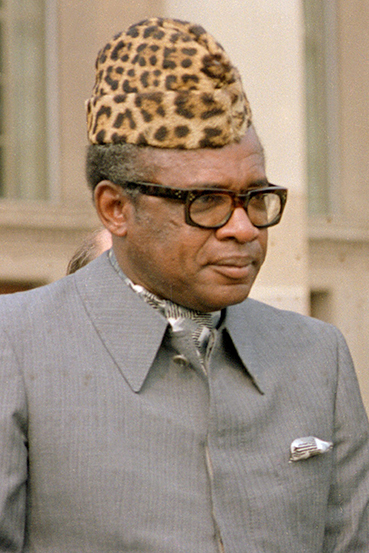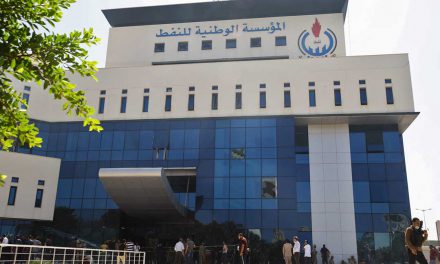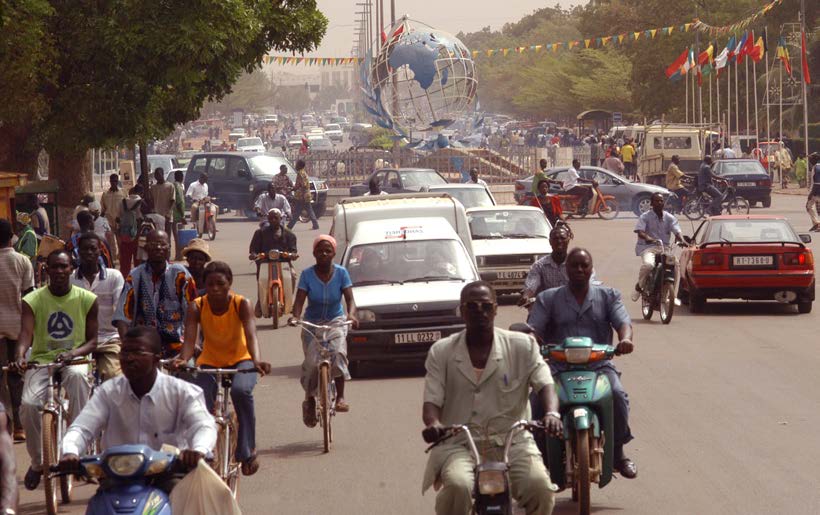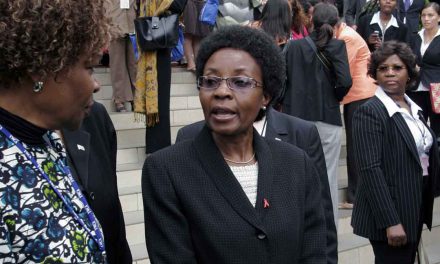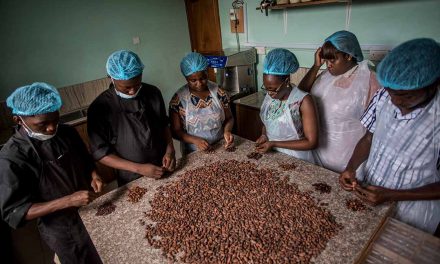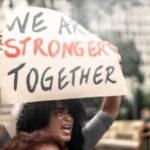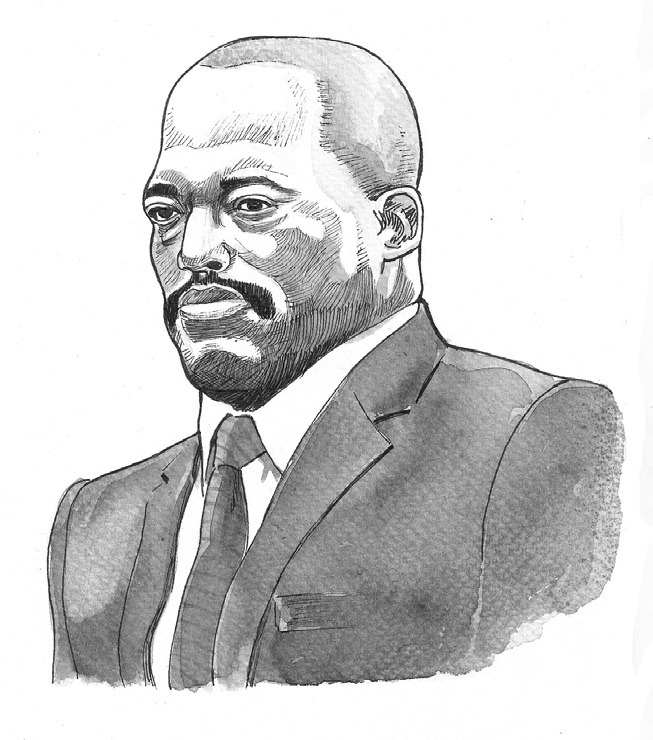
President of DRC, Joseph Kabila. Illustration: Vusi Malindi
As DRC President Joseph Kabila fights to retain power, opposition politicians must put political differences aside in the interests of the electorate
The 2006 elections marked the end of a dramatic decade in the Democratic Republic of Congo (DRC) after two wars (1996-1997 and 1998-2002) and a complex peace process.
Joseph Kabila, who succeeded his assassinated father Laurent-Désiré in January 2001, was sworn in on December 6, 2006 as the first elected president of the Third Republic, in the country’s first reasonably fair and free multiparty election since independence.
But the next election, in November 2011, was so contested that it brought the country to the edge of implosion. It was not organised to protect a fragile democratic process but to consolidate power.
The regime used its control over the security forces and the electoral machinery against a weak and divided opposition.
Since September 2014 President Kabila’s political family has attempted several times to push his reign beyond its constitutional limit of December 19, 2016.
Aubin Minaku, the speaker of the National Assembly, tried to change the constitution in September 2014 but failed to mobilise the necessary majority. In January 2015 the government proposed passing a new electoral law that included a census that would delay the elections by several years.
Once again, however, this was blocked—this time not by Parliament but in the streets. Protests were organised in several cities, including Kinshasa and Goma. At least 40 people died. Few expected the violence, and it was unclear who had instigated it.
The only strategy that has worked is slippage … delaying the electoral calendar on the grounds that the government is not ready to organise elections.
Given all this, the only strategy that has worked is slippage, le glissement: delaying the electoral calendar on the grounds that the government is not ready to organise elections; and the systematic non-disbursement of funds budgeted for phases of the electoral process.
Since 2014 Kabila has found it increasingly difficult to guarantee a cohesive government. It is likely that he exceeded his expiry date to take advantage of the superficial unity between the interest groups on which his regime is built.
Through his father, Kabila is a member of the Balubakat people in North Katanga. Both Kabila regimes (père and fils) are perceived as representing a Swahili-speaking Katanga-based political fortress. More recently, signs of serious discontent have emerged among the Balubakat. The north of the province, where the Balubakat comes from, has been largely absent of the growth dynamics observable in the major cities such as Lubumbashi, Likasi and Kolwezi.
The people there blame their leaders for this. After Laurent-Désiré Kabila took power, Balubakat leaders visibly enriched themselves, but there was hardly any return for North Katanga. Most Congolese politicians have used their mandate to develop their own regions by rehabilitating roads, building schools and hospitals, and so on.
In 2013 three Balubakat leaders lost decisive positions in key sectors of public life. John Numbi ceased to be national police chief, Daniel Mulunda Ngoi was dismissed as president of the electoral commission and Jean- Claude Masangu ended his mandate as president of the national bank.
At the end of 2014, Katanga turned against Kabila, a consensus incarnated in the personality of the then governor of Katanga, Moïse Katumbi.
In March 2015 party leaders within the majority, including Pierre Lumbi, Olivier Kamitatu, Charles Mwando Simba and Kyungu wa Kumanza joined forces. Known as the G7, they share the conviction that further constitutional reform or slippage of the electoral process pose enormous risks for the country’s stability, and might undermine the achievements of the peace and democratisation process.
Since then Kabila has struggled with the supporters of his challengers in 2006 (Jean-Pierre Bemba, who has since been tried and convicted in The Hague) and 2011 (Étienne Tshisekedi, who left the country in 2013, only to return in 2016). Most of all, he has struggled with members of his support base who won the 2006 elections with him, and who were the main reason Congolese and international public opinion considered the election to be reasonably free and fair.
Some were key people in his regime during his first period in office. Lumbi was minister of infrastructure and, later, Kabila’s counsellor on security; Kamitatu, minister of planning; Vital Kamerhe, who left the president’s camp in 2010, was speaker of Parliament; and, of course, Katumbi. They are now leading opposition figures.
Their success will depend on their capacity to mobilise the masses who are frustrated because they believe that the current regime has neither the capacity nor the political will to change the country. The mistrust is widespread, and directed at the entire political caste.
Politicians are thought to be interested only in enriching themselves, their families, their clans and their own communities. Little distinction is made between Congo’s political elite lacks moral authority and … the ability to manage social unrest.
Tshisekedi recently returned to the country, cheered by an impressive crowd. But it remains to be seen whether he can translate this enthusiasm into an effective popular force for change. The opposition must provide a plan to govern the country differently, and take into account the DRC’s complex ethnic and regional puzzle.
Katumbi is thought to be a likely challenger to Kabila. He has a good reputation as a businessman and manager, and is seen to be generous. He has the money, charisma and looks for a successful campaign, and has used his success in football and development to support his political ambitions.
Yet it is unlikely that the Congolese population will accept a third president from the former province of Katanga. Moreover, dark shadows hang over his business past: questions could be asked about how he acquired his wealth.
Many people think he lacks the strength of personality to be a leader at this level. He is not considered a sophisticated intellectual nor a visionary. He might play a crucial role in the future of the country, but a lot depends on the coalition he can mobilise.
Tshisekedi considers himself the president elected in 2011, and his followers in his home province of Kasai believe it is their turn to provide the president after predecessors from the western (Kasavubu), northern (Mobutu) and eastern (the Kabilas) parts of the DRC.
Other challengers are in the offing. In 2011, Kamerhe claimed much of Kabila’s 2006 electorate in the Kivu provinces. But can he manage the huge potential for grassroots anger and violence? Currently, every local conflict in eastern Congo is activated under pressure of local tensions.
The Congolese state collapsed at the end of Mobutu Sese Seko’s kleptocratic regime and has not risen from its ashes. Its capacity to deal with local conflicts is limited. Political protagonists may try to manipulate these conflicts to position themselves on the political chessboard at provincial or national levels.
Kabila has probably lost his capacity to hold together the antagonistic groups that comprise his regime. The opposition must prove that its leaders can unite to fight an election. They will have to build the country’s different local realities into a dynamic political force for change.

